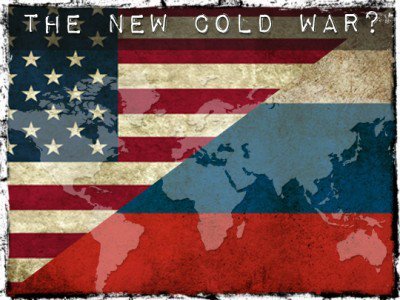
By Ben Aris, Intellinews, 5/27/22
Russians’ attitudes towards the US have nose-dived to their second worst level on record and the overwhelming majority (87%) believe the Kremlin should not make concessions to the West in order to have the extreme sanctions on Russia lifted.
Only 13% of Russians believe that their country should make concessions to the West. Young respondents under the age of 40 are a little more likely (18%) to believe Russia should make concessions. Older respondents, on the contrary, are the least likely to accept concessions from Russia (only 9% in the age group of 55 years and older), Levada found in its latest survey.
At the same time, negative feelings towards the US have increased dramatically, with 72% of respondents in March saying their feelings were “bad” against 17% that felt “good” and 1% undecided.
That is a turnabout from a slight majority for “good” (45%) versus “bad” (42%) in November last year right at the beginning of the rising geopolitical tensions.
Indeed, the population’s attitude towards the US has been broadly positive for almost all of the last three decades since the collapse of the Soviet Union in 1991.
In the very early days Russians were optimistic that after the animosities of the Cold War ended with the fall of the USSR that the US would step in with its famous entrepreneurial skills and actively participate in rebuilding Russia’s collapsed economy. Aid, such as food relief delivered in 1992 to deal with shortages, was seen as a sign of this co-operation. However, those expectations crashed in the 1998 financial crisis when Russia was left to fend for itself after the ruble collapsed on August 17, 1998.
Friendly feelings towards the US recovered during the booming noughties but crashed again in 2008 thanks to the double whammy of the US-induced global economic crisis and Washington’s backing of Georgia during a short war it fought with Russia.
Relations recovered again in the next decade, only to comprehensively collapse for a third time following Russia’s annexation of Crimea and the start of the international sanctions regime, which remains in place to this day. That collapse was a permanent change, as Russia was always willing to give the US the benefit of the doubt until the sanctions were imposed.
Attitudes towards the US started to improve slowly as the last decade wore on, despite the sanctions, as Russia emerged from a four-year long recession and the feel-good factor of returning prosperity in 2018 and 2019 made itself felt. Attitudes to the US even turned a net positive briefly in 2018 and at the start of 2020, until the coronavirus (COVID-19) pandemic broke out. But feelings towards the US have turned sharply negative again since the war broke out on February 24.
The number of Russians that feel it is necessary to co-operate with the US has fallen by 30%, Levada said, since the war started, but worry that dangers to the country are rising. The share of Russians that feel relations with the US are bad now reached 72% in March, the second worst result since January 2015, when 81% of the population felt negatively about the US and just ahead of April 2018, when 69% said the same.
“Respondents were offered a set of phenomena and processes and asked how dangerous they are for Russia. When comparing the results with the last wave of the survey, which took place in 2016, attention is drawn to the general increase in anxiety and the increase in the proportion of answers “very dangerous” for all the proposed options. At the same time, the greatest increase in fears is associated with foreign policy factors: the actions of the Nato alliance and the growth of US military power,” Levada said in a note.
Older respondents are more optimistic and more likely to expect changes for the better in terms of Russia’s global political influence (42%). Young people, on the contrary, are more sceptical: only 28% expect the strengthening of Russian influence, Levada found.
The number of Russians who believe that Russia was and remains part of Europe has remained virtually unchanged at 68%, against the results of a comparable study conducted in 2016 (64%).
There is noticeable age differentiation in the respondents’ answers: young people are less likely to agree with the statement that Russia is part of Europe than older people.
When asked which countries have respect in the world, the most respondents (88%) believed that China enjoys global respect, followed by Russia (66%) and Germany (52%). But only a third of Russians (34%) thought the US was respected with one in five (18%) saying Ukraine was respected.
Amongst respected world leaders, Russian President Vladimir Putin scored best amongst Levada’s respondents with 87% believing the Russian president is respected. Russian allies also scored well with Belarus’ president Alexander Lukashenko’s 82% and China’s president Xi Jinping’s 82%. Attitudes to western leaders did less well: French President Emmanuel Macron (24%), German Chancellor Olaf Scholz (14%), US president Joe Biden and Ukrainian President Volodymyr Zelenskiy (both 6%).
Levada compared the results of its survey amongst Russians with those in the US, in a parallel survey conducted by the Chicago Council on Global Affairs, which found a mirror image amongst American respondents. Asked which world leaders were respected, the US respondents put Zelenskiy at the top of the list with 81%, followed by Biden (52%), Xi (10%) and Putin (4%).
This is hardly surprising. If the shoe was on the other foot, this is exactly how Americans would feel.
” Asked which world leaders were respected, the US respondents put Zelenskiy at the top of the list with 81%, followed by Biden (52%), Xi (10%) and Putin (4%).”
Shows how well Amerikas propaganda machine works. Sadly really well.